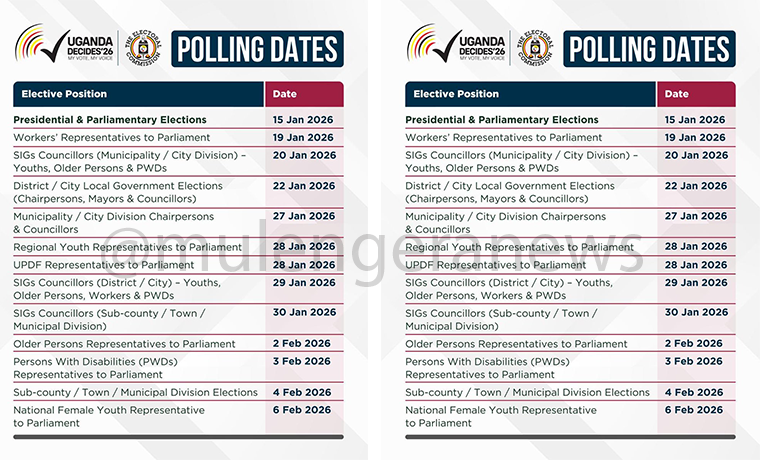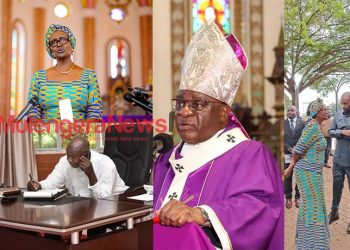By Mulengera Reporters
On Monday 27th May, the Governing Board for Rural Electrification Agency (REA) sat to consider a number of things including the Executive Director’s contract which is expiring at the end of July. The incumbent ED is Eng Geoffrey Turyahikayo; in charge since inception in 2001. This means that the 70 year old Tweheyo has done 17 straight years at the helm of REA, making him one of contemporary Uganda’s longest serving CEOs of a government agency.
During that meeting the Board decision to let Turyahikayo go was announced and this has since left many in total disbelief because it was considered a foregone conclusion by outsiders who thought he would automatically stay. Turyahikayo had survived harder adversity in the mid 2010s when efforts to portray him as a Mbabazi man and use that to get the President acquiesce to his ouster didn’t succeed.
Mulengera News has become privy to the grounds the Board based on to rate Turyahikayo as unsuitable for retention. To a greater extent, his ouster is being triggered by underperformance which knowledgeable sources say the Board had tolerated for too long.
At the political level, the President (whose no objection is very important when such decisions are being made) picked feelers that the donor community (whose funding is the lifeline of rural electrification programs in Uganda) was increasingly becoming impatient with management underperformance, incompetence and infighting. The infighting resulted from the insecurity the 70 year old Turyahikayo developed towards his deputy Eng Godfrey Khaukha Werikhe.
Years earlier, Turyahikayo’s supporters unsuccessfully protested the introduction of the Deputy ED office that was created specifically to back up the ED after it was considered that at his age, Turyahikayo wouldn’t be able to run as fast as was increasingly becoming required if REA was to meet the expectations of a very demanding President. Museveni has since resorted to using rural electrification projects to corroborate his transformation agenda anticipating a political dividend at election time.
Available information shows the sector leadership decided to fish Werikhe from UETCL (transmission) where he was doing wonders to bring his construction engineering prowess to expedite delivery of results in rural electrification. He had previously served as technical manager at REA prior to his elevation to the Deputy ED position. Turyahikayo’s supporters perceived Werikhe’s elevation as the start of the process to groom someone that would eventually be his successor.
Conflicts began immediately and as donors have been rightly grumbling the sub sector’s outputs began to dwindle. This caused Turyahikayo to come under growing pressure from both his Board and funding partners. It’s not hard to understand how this underperformance came about. On realizing everything he did caused him to be misunderstood by an increasingly paranoid ED, Werikhe became laid back and scaled down on the enthusiasm he had come in with.

Top management meetings became rare as the polarisis deepened to the extent of splitting REA staff deeply into two rival factions; with one loyal to ED Turyahikayo and another vehemently loyal to Deputy ED Werikhe. Relevant committee meetings became rare and very vital procurements and contract awards dragged on. Considering him too old and perhaps one on his way out, some influential managers began to openly defy Turyahikayo. This in the end hurt the overall performance of the entity called REA.
ILLUSTRATING UNDERPERFORMANCE
To understand the underperformance over which donors were on the verge of suspending funding cooperation with REA, one has to reflect on a few of the projects whose underperformance caused the Board and government to sacrifice Turyahikayo in order to appease donors not to suspend funding.
“To prevent the potential escalation, a decision had to be taken to get rid of the ED as a way of signaling the donors that government was apologetic and that something was being done to address concerns they have repeatedly been raising,” says a source privy to the goings on at REA.
Indeed Mulengera News has seen a memo correspondence between the Energy sector leadership and the President and some donor agencies clearly indicating poor performance (more than anything else) explains the halting of Turyahikayo tenure.
Some of the Turyahikayo rivals at REA have since gone into celebrations with one of them petitioning the IGG to investigate about one of the agency vehicles that got damaged while campaigning for one of the MP candidates in Rubabo. Sources at the IG said this is something over which Turyahikayo could be put to trial should investigations find him culpable.
As rivals celebrate, Turyahikayo’s supporters (including some female MPs) have lately resorted to looking for the President to lobby and warn him on the dangers of endorsing the Board decision dust-binning the humble man from Kanungu.
THE STALLED PROJECTS
We shall refer to about 10 projects to illustrate the performance anomalies that have continued to irk donors leading to widespread fatigue towards REA-implemented projects.
In 2013, the GoU secured a $15.61m loan from Islamic Development Bank to deepen rural electrification by constructing low voltage distribution networks in Karamoja sub region. The loan agreement, which Mulengera News has perused, specifically referred to this as Opuyo-Moroto 132kv transmission line project.
Consequently, money became available to the Turyahikayo-led REA management on 10th December 2013 yet as of last month, only 48% (or $7,503,765.7) of the total loan had been absorbed ahead of the loan expiry date of 11th September 2021. One of the leaked memos indicates: “Similar dismal performance is also affecting other projects funded by the Abu Dhabi Fund, the French Development Agency, Kuwait Fund and KFW [of Germany].”
Under BADEA and OFID funding, the GoU in October 2015 secured $30m for rural electrification programs in Kayunga, Buikwe, Mukono, Kamuli, Buyende and Jinja districts but as of last month, Turyahikayo’s REA teams had only absorbed or utilized/spent $19,843,869.95 which is 66.1%. They had time since October 2015 and the loan expiry date as set by the funder is August 2019. This means barely two months remain to reach expiry date yet 34% of the work remains undone.
Ideally the Chief Executive is supposed to have delegated or assigned directors or managers to implement these projects and if they fail without reasonable cause, a prudent CEO sanctions them and reports to his superiors in the Board seeking ratification of his decisions cracking the whip on floppy staff. When the Board asked for accountability, Turyahikayo couldn’t decisively point at an officer or officers responsible for this dismal showing.
On 11th June 2018, the GoU secured $11m from Abu Dhabi Fund for Development giving itself less than 3 years to have utilized the money to roll out mass rural electrification projects in Masaka, Kalungu district and its environs but as of last month, only $2,188,948.45 (or 19.9%) had been spent ahead of the 31st December 2021 deadline.
Mulengera News investigations show there was also another project called “Uganda Rural Electricity Access” into which the African Development Bank injected $100m. Loan agreement was signed on 4th November 2015 and is to expire on 31st December 2020. But as of last month, Turyahikayo’s report card indicated only $3,970,468.32 of the money had been spent on project implementation equaling mere 4%.
Yet that isn’t all. Mulengera News understands that on 7th December 2015, the GoU secured $70.73m worth of funding from IDB for the implementation of the “Grid Rural Electrification Projects in various parts of the country” and the cash was made available to Turyahikayo as the REA Accounting Officer in December 2015 but as of last month, the entity had only managed to utilize or absorb $36,925,772.91 representing 52.2% ahead of the project deadline of 31st December this very year.
There is another $36.62m the GoU availed to REA top management from IDB for the construction of distribution and low voltage networks under the Mirama-Kabale 132kv transmission line project. But as of the 27th May Board meeting, the very disappointed Directors were told only $15,012,714 or 38.9% had been absorbed. Management was stuck with the remainder of the cash because the ever-escalating infighting prevented the procurement of the relevant service providers from commencing on time. Mind you the deadline for the same loan agreement falls on 17th August this very year.

The World Bank bosses too are furious that REA hasn’t excelled at utilizing the $135m they provided in December 2015 for Energy for Rural Transformation project phase 3. The money has been lying idle for much of the time because as of May this year, only 13.8% or $18,661,141 had been put to use yet the loan agreement expires on 31st December 2020. Closely related is the AfDB grant of Euros8.3m, whose related activities were supposed to begin being implemented in December 2015 yet as of last month only Euros130,000 had been absorbed or spent on work representing a paltry 1.6%.
Knowledgeable sources say Turyahikayo was well intentioned but the apprehension most of the influential young REA engineers and managers developed towards him poisoned the environment making it hard for him to perform. Insiders say over time, the man became so much paranoid management decisions couldn’t be taken as he would struggle to even raise Coram.
Sometimes guys would come to the meetings and sabotagingly keep quiet instead of contributing ideas or critiquing what he was putting forward. Some would be heard in corridors of the Kamwokya-based agency loudly wondering why anyone would be interested in contract renewal upon clocking 70 in a very demanding environment like REA which the President wants to connect all Ugandan households with free power access between now and Christmas of 2020. Close to a trillion has been availed in the FY2019/2020 budget and the big man clearly anticipates using this mass rollout to package his campaign message as he faces new unknown challengers like Bobi Wine Kyagulanyi Sentamu.
Much of the ineptness in implementing projects at REA has been attributed to delays in processing contract documents and “weak project management, inefficient internal processing seen in preparation of bidding documents, evaluation committee reviews, contract committee approvals and inadequate quality control of documentation leading to lengthy consultations in the clearance process with the funding institutions.”
Another of the confidential documents states that: “In addition to failure to utilize funds, the Agency is supposed to prepare and maintain a rural electrification database which the Board kept reminding the Executive Director but has not been done. As a result, long-term planning for new infrastructure and or replace aging infrastructure is not done implying that there is absence of a baseline against which realistic targets can be set or performance measured against. The Board has also consistently noted lack of team work/cohesion in the Management and staff of REA.” (For comments, call, text or whatsapp us on 0703164755 or email us at mulengera2040@gmail.com).































